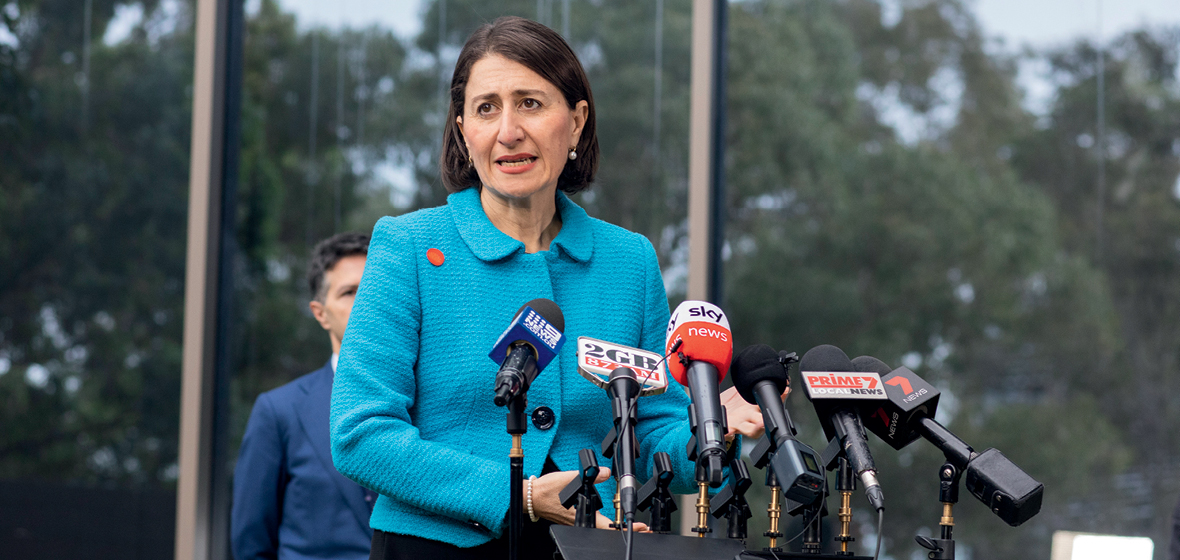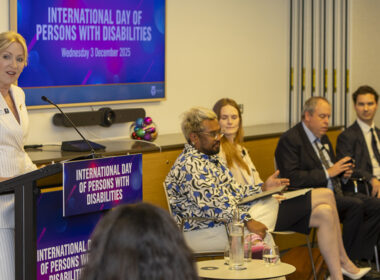ICAC can require a target to give evidence when, in a criminal trial, a defendant has a right to silence. Evidence given to ICAC under that compulsion is generally not admissible in a subsequent criminal trial.
Former Premier of NSW Gladys Berejiklian will not face criminal prosecution despite the NSW Independent Commission Against Corruption (ICAC) finding that she engaged in “serious corrupt conduct” by breaching public trust when she was in office.
The findings relate to ICAC’s investigation (Operation Keppel) into the conduct of the then member for Wagga Wagga Daryl Maguire between 2012 and 2018, and whether he “improperly used his office” and its resources to advance his own financial interests, and that of his associates.
On Thursday 29 June, the state’s corruption watchdog handed down the highly anticipated almost 700-page report into the investigation, ending more than 18 months of uncertainty about the outcome after Berejiklian sensationally resigned from Parliament.
ICAC also found Berejiklian failed to declare a “close personal relationship” with Maguire when there was a conflict of interest between her “public duty” and her “private interest”. Further, the Commission found Berejiklian engaged in corrupt conduct by failing to report suspicions of Maguire’s activity.
ICAC is of the opinion that the Director of Public Prosecutions (DPP) should consider criminal charges against Maguire and some of his associates, however, it has not recommended prosecution against Berejiklian.
Director of J Sutton Associates Andrew Tiedt breaks down the three main reasons why Berejiklian hasn’t been recommended for prosecution.
 Director of J Sutton Associates Andrew Tiedt
Director of J Sutton Associates Andrew Tiedt
“The first is that the burden of proof for a criminal trial is “beyond reasonable doubt”. That is a far higher bar than applies to a finding by ICAC,” Tiedt said.
“The second is that ICAC has powers a criminal court would not have. In particular, ICAC can require a target to give evidence when, in a criminal trial, a defendant has a right to silence. Evidence given to ICAC under that compulsion is generally not admissible in a subsequent criminal trial.
“The third is that “corrupt conduct” includes within its broad definition acts that, whilst corrupt, are not necessarily criminal.”
Geoffrey Watson SC, a barrister and Director at the Centre for Public Integrity, wrote in the Sydney Morning Herald that the reason there was no referral of her conduct to the DPP, is because of “the difference between the statutory definition of corrupt conduct and specific criminal acts”.
“The statutory definition of corrupt conduct embraces a wide range of conduct which might not be criminal – failure to reveal conflicts of interest is one; pork-barrelling is another,” wrote Watson.
“On the ICAC’s findings, Berejiklian’s conduct fell well short of a proper discharge of her public duties, but it was not criminal.”
Watson also criticised the “appalling delay” in producing the report and expressed hope that the new team leading the commission would “resharpen its tools”.
“The report is long, careful and detailed, but while that might explain some of the delay, it does not excuse it,” he wrote.
“The ICAC obviously needs to do that which is necessary to fix this and prevent its recurrence.”




